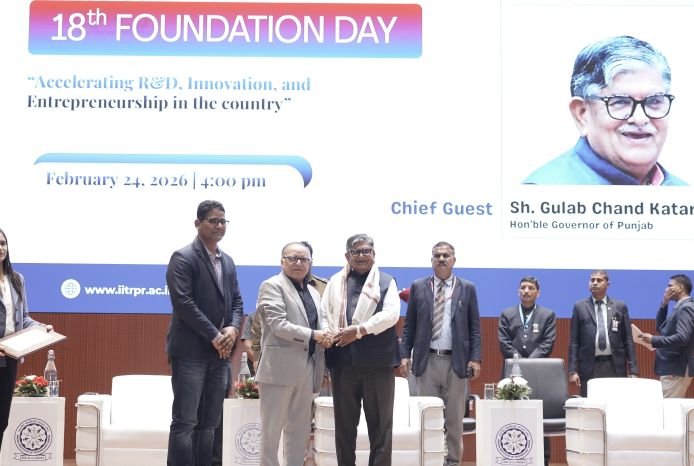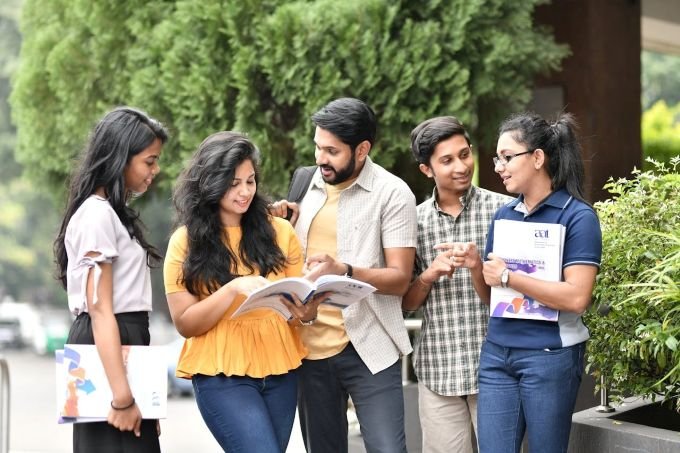
In the past couple of years, India reached an all-time high in sending out students for international enrollment as more students are seeking better overseas education opportunities to enhance their career prospects globally. There are over 1.5 million Indian students currently studying in various foreign education destinations, and the number is expected to increase constantly in coming years. Therefore, it is good for the Government to recognize and harness this potential by implementing measures to make international education more accessible and affordable for more students even from the hinterland.
Likewise, in line with the Government’s focus on the ‘Study in India’ programme – there is a need for showcasing academic standing and rigour of Indian higher education institutions (HEIs). For this Government must support more partnerships like the Australia-India educational collaboration. As seen with the opening of GIFT City, creating new opportunities and fostering collaboration between Indian and international universities is also about creating avenues for cross-cultural learning and research. A focus on global education in this budget will empower young Indians and strengthen India’s standing in STEM fields on the world stage
In this context, many consultants and experts in the study abroad operations hope to see announcements that foster international academic collaborations, ease student mobility and lessen their financial burdens. Such proposals in the budget, they believe that this also presents an opportunity for India to channelize youth potential and raise country’s international profile. “With the growing demand for international education, it is imperative that the budget addresses the need for better financial assistance education through increased scholarships and other instruments,” says Meenakshi Kachroo Chatta- Senior Director & Regional Head, College Board – India, South & Central Asia
Measures like reducing interest rates on education loans and increase in scholarship support for aspiring study abroad students will ease their financial burden and help cultivate a generation of globally competent and confident individuals. “This could involve targeted scholarship schemes for Tier 2 and Tier 3 city students, tax benefits for families supporting overseas education, and streamlined visa processes. A supportive budget addressing these aspects will not only enable students to pursue their international education dreams but also contribute significantly to India’s long-term economic and intellectual growth,” says Abhijit Zaveri, Founder & Director, Career Mosaic,
Investments to enhance global mobility of our workforce and prioritizing their language skills will be key. India has the potential to harness its human capital which can become a talent pool for the world in the next decade, and here Government must initiate public-private-partnership models to achieve scale in training & assessment of India’s young demographic. “Here’s we urge the Ministry of Education to broad base acceptance for global admission tests and partner International agencies who can help to bring in international students. Steps such as these will help to make our classrooms more diverse and global, while also augmenting the stature of the Indian higher education institutions,” adds Sachin Jain, Country Manager, ETS India and South Asia.
According to Saurabh Arora, Founder & CEO, University Living lowering interest rates on education loans and a reduction or waiver in Tax Collected at Source (TCS) when remitting money for overseas education are crucial for alleviating financial burdens on students and their families, thereby enhancing access to education at their chosen destinations. Then, implementing student concessions on air travel is imperative to make global education economically viable for a broader demographic of students. This would not only foster cultural exchange but also elevate India’s representation on the global academic stage. “We hope these comprehensive budgetary considerations will create a more supportive environment for Indian students undertaking international education, fostering academic growth, and enhancing India’s presence in global educational sector,” Saurabh adds.
“There’s hope for reduced GST on international qualifications, easier access to educational loans, and improved employment prospects for certified professionals. These changes would make global education more affordable and accessible, fostering a highly skilled workforce that can compete on an international stage and contribute significantly to India’s growth and development, feels Pankaj Dhingra, CA & CPA, Co-Founder & Managing Partner, FinTram Global
“Given the government’s emphasis on developing a skilled workforce for multicultural environments and the increase in funding for higher education reflected in the interim budget, it is expected that the government will support more partnerships like the Australia-India educational collaboration. Such initiatives will open new pathways for knowledge and workforce exchange and streamlining the process for foreign universities to establish campuses in India will also strengthen India’s international standing and prioritize global education,” says Aritra Ghosal, Founder and Director of OneStep Global.








